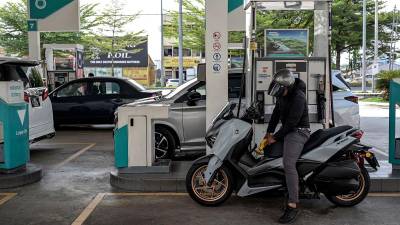KUALA LUMPUR: Consumer associations have welcomed the government’s decision to reduce the subsidised price of RON95 petrol to RM1.99 per litre under the BUDI MADANI RON95 programme.
Prime Minister Datuk Seri Anwar Ibrahim announced the six-sen reduction from the current RM2.05 during the Prime Minister’s Department monthly gathering, with the new price taking effect from September 30.
Federation of Malaysian Consumers Associations chief executive officer Dr T. Saravanan described the measure as practical assistance for households managing living costs.
Fuel remains a daily necessity for many Malaysians whether for commuting to work, sending children to school or running small businesses.
Any reduction in petrol cost translates into meaningful savings which can then be channelled towards food, education and other essential expenses.
Saravanan noted that while the subsidy helps cushion consumers from inflationary pressures, it must balance short-term relief with long-term economic sustainability.
The quota-based structure coupled with measures to prevent abuse will be critical to ensure the subsidy benefits are not wasted.
Subsidies should also be part of a wider social safety net that includes stronger public transport, affordable housing and food security initiatives.
Pertubuhan Mesra Pengguna Malaysia chairman Datuk Seri Haniff Omar said the price reduction demonstrates government concern for people amid high global fuel prices.
The use of digital platforms such as the Setel app can help minimise potential system disruptions during implementation.
The BUDI95 initiative offers all Malaysians with an active driving licence up to 300 litres of subsidised petrol monthly.
Muslim Youth Movement of Malaysia president Ahmad Fahmi Mohamad Samsudin praised the announcement as a positive step in curbing longstanding subsidy leakages.
Targeted subsidies have the potential to create positive ripple effects across logistics costs, staple food prices and public transportation fares.
Subsidy leakages extend beyond petrol and involve blanket subsidies for items such as tolls, rice, sugar, electricity and cooking oil.
ABIM urged comprehensive subsidy reform through smart targeting with digital infrastructure integration between relevant agencies.
The effectiveness of BUDI95 hinges on the readiness of supporting infrastructure including MyKad systems, card readers and digital applications.
All systems must be fully operational before enforcement begins with a longer pilot period recommended for rural areas. – Bernama
